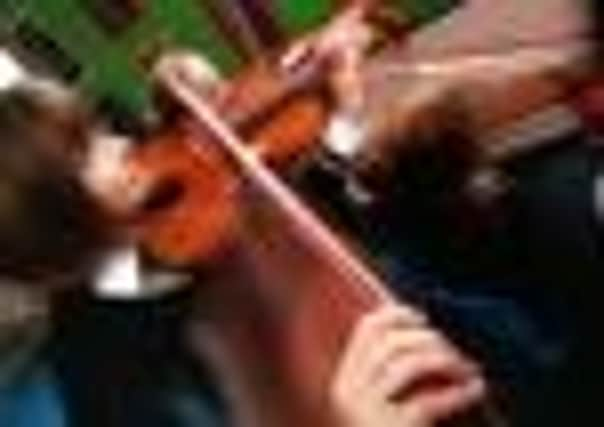Leaders: A welcome step towards fair play | Ill-chosen words


We believed it was indefensible that tens of thousands of school kids were being charged up to £340 a year to learn a musical instrument at state school. We believed it was an outrage that, in some parts of Scotland, tuition fees were charged even when children were sitting SQA exams in music. We believed the availability of musical instruments in schools was woefully insufficient. And we believed the Scottish Government needed to get a grip on an area of policy where the lines of political responsibility and accountability had become blurred to the point of indecipherability. We realised this was a tricky issue. But we knew if the case for change could capture people’s imagination, and harness the power of music itself through the testimony of Scotland’s greatest musical practitioners, we could make a difference. As we reveal on our front page today, we were right.
Credit where it is due, the Scottish Government response to our campaign has so far been admirable. Mike Russell, the Cabinet Secretary for Education and Lifelong Learning, has at times in recent months been on the receiving end of this newspaper’s ire, for various reasons. But he and his colleague Alasdair Allan have grasped that this issue goes to the heart of what we expect Scottish schools to provide for our children. Moreover they seem to have taken to heart the evidence we have presented in recent weeks that tuition fees – particularly those that effectively put a price tag on sitting Higher or Standard Grade music – mean that children from poor families are far less likely to be able to learn an instrument. Ministers appear to have recognised that, at heart, this is an issue of fairness. For a child to be denied the clear benefits – in terms of mental discipline, self-esteem and cultural richness – just because of their parents’ financial precariousness, is an affront to the egalitarian principles of a Scottish comprehensive education.
Advertisement
Hide AdAdvertisement
Hide AdThe setting up of a working group to examine the issue – with particular reference to the SQA payments – is a most welcome first step. But ministers’ grasp of the issues does not seem, at this stage, to be reflected in the attitudes of Scotland’s local authorities. In a report published last week they appeared to be defending the right of councils to charge for this tuition. Their approach was defensive and evasive, and avoided addressing the basic principle of free schooling, even for children sitting exams. It is to be hoped that ministers and teachers’ groups, along with the Royal Conservatoire, can bring pressure to bear.
We shall examine this process every step of the way, and keep up the pressure. We hope tuition fees for instrumental music tuition are scrapped long before the next council elections. But in the meantime we will ask Scotland’s political parties to adopt a manifesto commitment to scrap all tuition fees for musical instrument tuition in Scottish schools. That way, if it proves necessary, local authorities will be left with no option. For now, the £1 million fund to buy new musical instruments will make a tremendous difference to the learning experience of thousands of Scottish schoolchildren. It is heartening that we have made real progress on delivering our five-point action plan. But we will not give up this campaign until we fully achieve our aim.
Ill-chosen words
ALASDAIR Gray sits among that group of authors and artists who have earned the description “national treasure”. His 1981 novel Lanark has often been called a masterpiece, and his contributions to poetry, theatre and visual art over the past 30 years have been as celebrated as his literature.
Gray laughs off much of the praise that comes his way and describes himself as “a fat, spectacled, balding, increasingly old Glasgow pedestrian”.
In a timely new book by Scots writers on the touchstone issue of independence, as we report today, Gray wades into the thorny issue of English immigration into Scotland, saying that those who come to live and work north of the Border can be divided into “settlers” (good) and “colonists” (bad), and asserts that the latter can be found in many walks of Scottish professional life.
In doing this, he fosters a divisive attitude to the English-born people who have made their home in Scotland and who contribute to the national fabric of a country that has always benefited from immigrants. With anti-English sentiment rising according to official figures revealed last week, Gray’s careless and cavalier use of the word “colonist” is deeply unhelpful, and deeply regrettable.